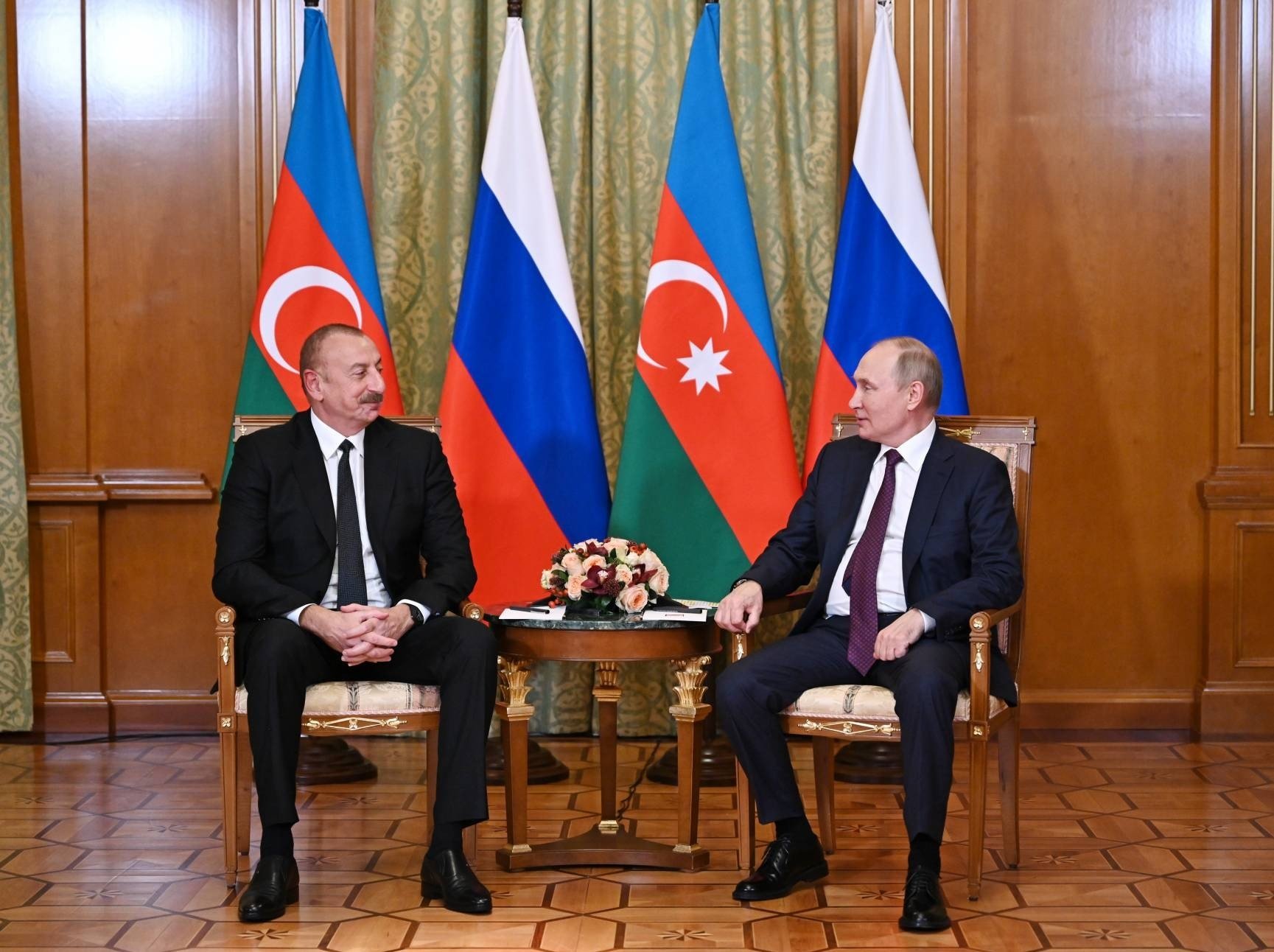Tensions between Russia and Azerbaijan have reached a boiling point amid a string of violent incidents, detentions, and high-level diplomatic fallout. What began as a reopened murder investigation in Russia has escalated into a full-fledged diplomatic standoff, with ethnic targeting, extrajudicial killings, and retaliatory media crackdowns fueling the fire.
At the center of the scandal are operations carried out by Russian law enforcement in Yekaterinburg over the weekend. Russian authorities raided the homes of Azerbaijani nationals in connection with a series of old murder cases—specifically, the 2001 killing of Azerbaijani businessman Yunis Pashayev and other homicides dating back to 2010 and 2011. According to Russia’s Investigative Committee, the raids targeted an “ethnic criminal group” allegedly led by the Safarov brothers. In total, around 50 people were detained.
According to Azerbaijani sources, two brothers—Ziyaddin and Huseyn Safarov—were killed during the raids. Three others, Akif, Ayaz, and Mazahir Safarov, received 22-day detention orders, while Bekir Safarov, Ahliman Ganjiev, and Shahin Lalayev were held for three days. One detainee reportedly died of heart failure in custody, while the cause of death for another remains under investigation. Azerbaijani authorities allege the deaths were the result of beatings sustained while being transported in a police vehicle. Lawyers for some detainees claim torture and physical abuse by Russian officers.
Footage from court appearances shows at least one suspect with visible bruises and hematomas, though Russian officials assert the injuries were sustained prior to arrest. Meanwhile, Yekaterinburg resident Ramil Safarov described in an interview how law enforcement allegedly broke into his home, beat him and his father, and forced them to confess to crimes they say they did not commit.
Azerbaijan’s response has been forceful. The Foreign Ministry issued a sharp condemnation and summoned Russian chargé d’affaires Pyotr Volokovich. Baku demanded an urgent investigation and swift accountability, accusing Russian authorities of carrying out “extrajudicial killings based on ethnic identity” and claiming such actions have become “systemic.”
On June 29, Azerbaijan’s Ministry of Culture canceled all Russian cultural events in the country. The move was followed by the withdrawal of the Azerbaijani parliamentary delegation from the 23rd session of the Interparliamentary Cooperation Commission with Russia. According to the Milli Majlis, the decision was made in protest of what it called the “targeted, demonstrative killings” of Azerbaijani citizens.
Azerbaijani officials and commentators have intensified their rhetoric. MP Vugar Isgandarov criticized Russian Foreign Ministry spokesperson Maria Zakharova’s remarks as “unsatisfactory,” while MP Sabir Rustamkhanli called the raids “state crimes” and condemned Russia’s treatment of Turkic and Muslim communities. MP Elchin Mirzabeyli accused Russian authorities of pursuing a chauvinistic and anti-Muslim agenda targeting Azerbaijanis and other Central Asian minorities.
Prominent political analyst Sardar Jalaloghlu argued that the Yekaterinburg raids were not merely legal actions, but part of Russia’s broader political course aimed at reigniting tensions over the already-resolved Nagorno-Karabakh conflict. He accused Moscow of pursuing a hostile policy toward Baku.
While President Ilham Aliyev has yet to personally comment on the crisis, Azerbaijani law enforcement has launched its own criminal case against Russian officers on charges of premeditated murder and other crimes specifically targeting Azerbaijani citizens and persons of Azerbaijani origin. According to Azerbaijani authorities, Russian officers tortured and beat detainees during the Yekaterinburg operations. As a result, two Azerbaijani citizens died, and several others were arrested in connection with past crimes. Baku maintains that the deceased victims died from injuries sustained while being transported in a police vehicle.
In parallel, Azerbaijani security services raided the Baku office of Sputnik Azerbaijan, the local branch of Russia’s state-run news agency. Though its operations had already been scaled back following the downing of an Azerbaijani aircraft earlier this year—an incident Baku also blamed on Moscow—this latest escalation involved the arrest of two individuals identified by Azerbaijani officials as working for Russia’s Federal Security Service (FSB). Russian authorities, however, claim they were journalists, not intelligence agents.
More recently, on July 1, Azerbaijani authorities detained suspects they describe as members of an organized crime group, some of whom are Russian citizens. They were accused of drug trafficking and cyber fraud. Videos circulating from these arrests appear to show physical violence during detention, further straining ties between the two countries.
Following the raids on media, Moscow summoned Azerbaijani Ambassador Rakhman Mustafayev to the Foreign Ministry. Spokesperson Maria Zakharova said Russian diplomats in Baku were unable to contact the detained individuals for more than two hours and were unable to obtain information through official channels.
RT Editor-in-Chief Margarita Simonyan condemned the arrests, and the Russian Foreign Ministry demanded their immediate release, warning that “the media should not become a target in political disagreements.”
Kremlin spokesperson Dmitry Peskov called Baku’s actions “unacceptable” and argued that Russian law enforcement activities on Russian soil should not provoke a diplomatic rupture. When asked whether President Putin intended to speak with President Aliyev, Peskov responded that no such conversation was currently planned.
Meanwhile, the Azerbaijani diaspora in Russia has taken a different tone. A coalition of diaspora organizations criticized the Aliyev administration for endangering Russian-Azerbaijani relations and urged officials to prioritize diplomatic engagement and assistance to Azerbaijani citizens over political grandstanding.
Observers believe Azerbaijan may be using the Yekaterinburg incident to recalibrate its foreign policy and assert independence from Moscow. According to the Geghard Scientific-Analytical Foundation, while the roots of the scandal lie in criminal investigations, Baku is politicizing the events to fuel an anti-Russian campaign both at home and abroad.


